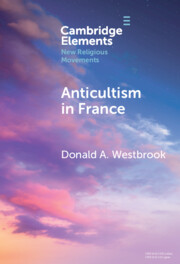Developed in the early 1950s by science fiction writer L. Ron Hubbard, Scientology was part of the larger postwar therapeutic culture that blended religion and psychology in a search for mental well-being. Unlike contemporaneous self-help gurus such as Norman Vincent Peale and Harry Overstreet, however, Hubbard painted a much bleaker portrait of modern life, one rife with forces of psychological and social control. Railing against communists, homosexuals, and feminists as well as against the decay of the family and the rise of the welfare state, Hubbard argued that Americans suffered from a waning sense of ontological security, living in a world that provided no support for self-identity. Hubbard refused, however, to shrink from such changes and lapse into nostalgia for a pre-modern, pre-technological world like Peale and others did; instead, he offered a way for individuals to appropriate the dynamism of modernity for themselves. As advanced industrialization erased distances between societies, revolutionized transportation, and computerized information systems, Hubbard reimagined the self as spiritual being possessing precisely those powers to manipulate time and space and to remake the world at large. Borrowing freely from Eastern religious ideas, cybernetic theory, and German idealism, Hubbard produced a philosophy that was staunchly libertarian, spiritual, and future-oriented, one that tapped into Cold War fears about psychological manipulation and waning personal autonomy and into dreams about the immanent power of human beings.
